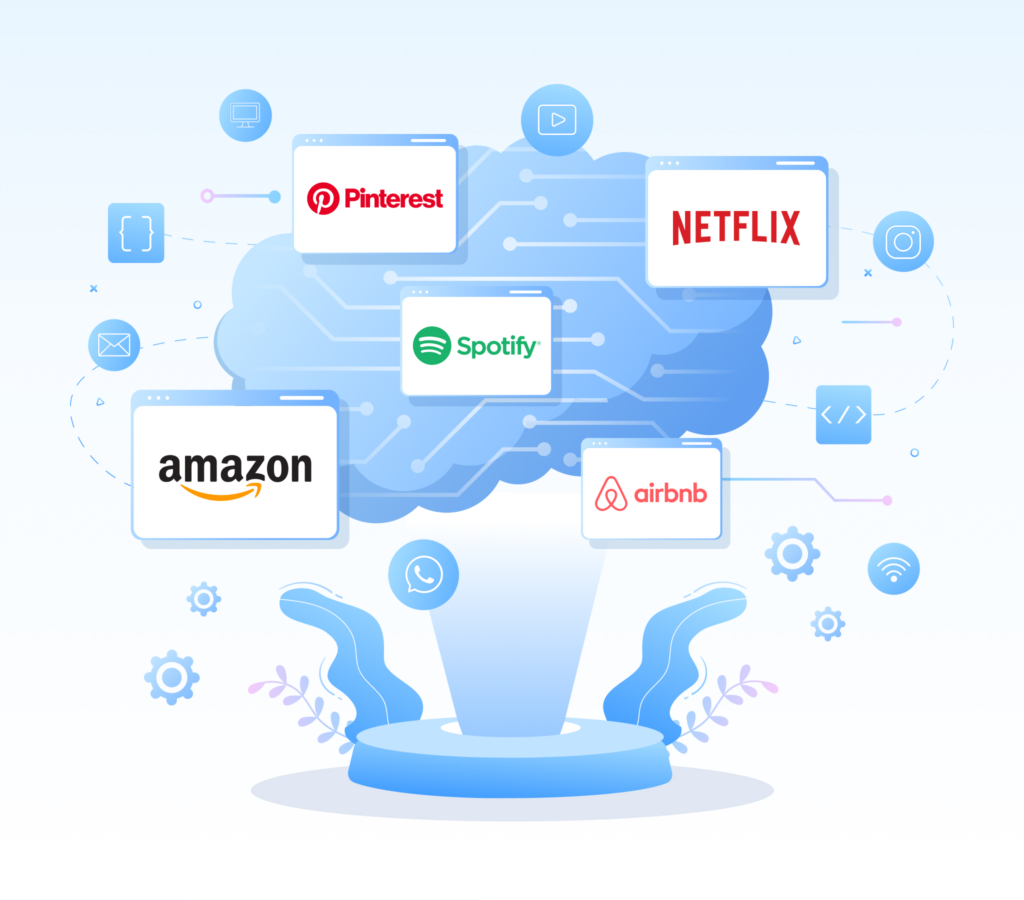Machine learning (ML) plays a crucial role in transforming various everyday technologies, improving efficiency, personalization, and automation across multiple sectors. From healthcare to marketing, its applications significantly enhance user experiences and streamline processes.
Enhancing Customer Experience and Personalization

Machine learning is fundamentally changing how businesses interact with customers. For instance, in marketing, ML algorithms are employed to understand consumer behavior, tailoring experiences based on individual preferences. Companies leverage ML to monitor customer interactions, identify interests, and suggest relevant products or services. For example, 35% of Amazon's sales now stem from product recommendations generated by analyzing customer viewing and purchase histories[2]. Similarly, streaming services like Netflix use ML to recommend shows based on viewing habits, with around 75% of content consumed stemming from these suggestions[2].
In e-commerce, ML algorithms assist businesses in re-engaging customers by targeting those who abandoned their shopping carts or browsing their websites. This targeted approach enhances the likelihood of conversions, thereby increasing sales[1]. Through tools like chatbots, powered by ML, companies can provide immediate customer service, significantly improving satisfaction by offering around-the-clock support without delays[1].
Automation in Daily Tasks
Machine learning dramatically automates numerous tasks, particularly in industries like finance and health care. In finance, ML is utilized for real-time fraud detection by analyzing millions of transactions to pinpoint anomalies, allowing institutions like American Express to identify and alert customers about fraudulent charges almost instantaneously[2]. This automation not only saves time but also boosts customer confidence in financial institutions' security measures.
Healthcare applications also highlight the impact of machine learning. ML aids in disease diagnosis by analyzing patient data and medical imaging. For instance, algorithms have been developed to enhance the accuracy of tumor detection in mammograms, outperforming traditional methods that miss nearly 40% of cancers[1]. Moreover, ML tools can provide preliminary medical recommendations through virtual assistants, streamlining patient interactions and easing the workload on healthcare professionals[3].
Smart Technologies in Transportation
The transportation sector has also benefited significantly from machine learning applications. Ride-sharing companies like Uber and Lyft depend on ML algorithms to match riders with drivers efficiently, considering factors such as historical data and real-time traffic conditions to optimize routes and estimated arrival times[1][3]. Google Maps utilizes ML to assess current traffic patterns and suggest alternatives, providing users with timely information that enhances their travel experience[1].
In the realm of autonomous vehicles, machine learning is critical for their operation. By employing ML for real-time data interpretation from sensors and cameras, these vehicles can make split-second decisions that ensure safety and efficiency while navigating complex environments[3]. This capability underpins self-driving cars' navigation, object recognition, and adaptive learning in varying conditions.
Transformative Power in Marketing Strategies

Machine learning's influence extends to marketing strategies, providing tools that enhance targeting and advertisement effectiveness. For example, ML enables precise customer segmentation based on purchasing behavior and demographics, allowing businesses to deliver tailored advertisements that resonate with specific audiences[3]. By utilizing predictive analytics, brands can forecast demand and adjust their marketing strategies accordingly, ensuring optimal resource allocation and inventory management[3].
Furthermore, ML is revolutionizing the operational efficiency within marketing departments. The automation of data analysis, content optimization, and customer interaction tasks frees up valuable time for marketers to focus on strategic initiatives[3]. This shift not only improves workplace productivity but also leads to better outcomes in customer outreach.
Conclusion
Machine learning significantly influences everyday technology by enhancing personalization, automating processes, and transforming customer interactions across various industries. As ML algorithms continually evolve, the potential applications will expand further, making technology smarter and user experiences more seamless. Whether through personalized recommendations, real-time fraud detection, or efficient transportation solutions, machine learning stands as a pillar of innovation in our daily lives, driving efficiency and improving decision-making across sectors.
Get more accurate answers with Super Pandi, upload files, personalized discovery feed, save searches and contribute to the PandiPedia.
Let's look at alternatives:
- Modify the query.
- Start a new thread.
- Remove sources (if manually added).